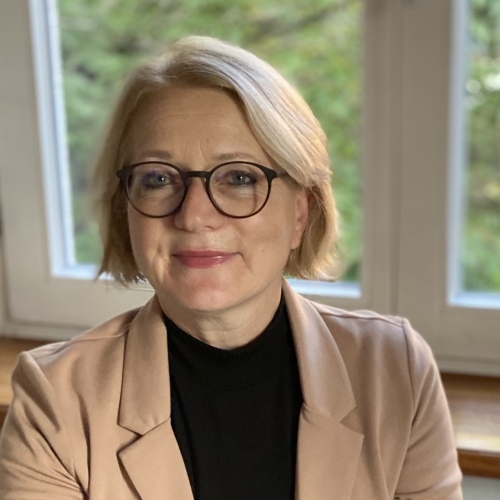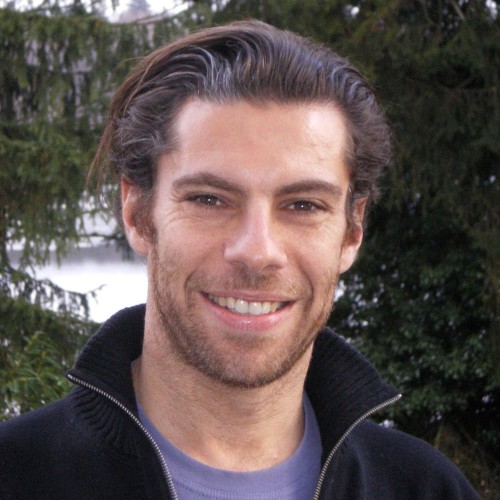Medical Ethics
Developments in medical research and practice constantly raise new ethical questions. Doctors are often faced with complex moral decisions in their daily practice.
The continuing education master’s degree “Medical Ethics” familiarizes medical professionals with the basics of philosophical ethics. The skills acquired are applied practically to morally relevant situations in everyday clinical practice and in research. This provides participants with an ideal opportunity to reflect on their actions and make ethically sound decisions.
Profile
| Qualification: | Medical Ethics, Master of Arts (M.A.) |
| Scope: | 60 credit points (ECTS) |
| Study duration: | 2 semesters or flexible |
| Start of studies: | At any time |
| Registration deadline: | At any time |
| Costs: | €900 per module (no discount available) |
Target Groups
This continuing education program has been offered continuously by the Institute of Philosophy since the winter semester 1999/2000. It is aimed at interested parties and professionals from the healthcare sector: doctors, nurses, hospital pastors, employees of the medical associations, but also medical students who would benefit from an accompanying distance learning course.
 Photo: Private
Photo: Private
“It has been a hugely enriching process being able to discuss and exchange ideas with experienced professors and open-minded fellow students in the various seminars and modules on medical ethics. It has left me with a renewed interest in all the medical-ethical decisions from the beginning to the end of every life.”
Iris Grevé-Martin, Medical Ethics Photo: Private
Photo: Private
“Overall, since I took this course, I feel better equipped to deal with the ethical problems that I am constantly confronted with in my work as a medical practitioner and as an expert witness for civil and criminal law issues. The discussion of ethical issues is also something that is very much appreciated by the junior doctors I supervise in their further training.”
Dr. Markus Rezk, Medical EthicsBenefits at Work
Take advantage of the high-quality academic training course to enrich your everyday working life, for example through:
- Reflecting on your own medical practice and research
- Ethically based decision-making in moral conflicts
- Expert participation in clinical ethics committees
- Research according to ethical principles
Register here or request information material
Start of course: At any time
Simply contact us using the following link. We will send you the registration or information documents for the continuing education master’s program by email.
Useful Information
On the Department of Philosophy IV: Philosophy of Medicine and Technology website you will find further information on the structure and course of the program.
-
Admission requirements
- A relevant degree with at least 240 ECTS and, as a rule, at least one year of relevant professional experience. Professional activity is particularly relevant for those practicing a medical or medical-related profession.
Course content and organization
The course comprises the compulsory module (Module I: Fundamentals of Ethics), three compulsory elective modules and a master’s thesis. Each module consists of 3 course units. In addition to printed study packs, there will be an introductory online lecture and discussion evenings on the individual modules as well as on-campus events (seminars) on specific topics from the modules.
Module I: Fundamentals of Ethics
Course 1: Ethics and Metaethics
Course 2: Main Theories of Moral Philosophy
Course 3: Fundamentals of Applied Ethics, Bioethics and Medical EthicsModule II: Fundamentals of Medical Theory
Course 1: Ideas of Man, Anthropology and the Good Life
Course 2: Concepts of Disease, Medicine as a Science
Course 3: The Doctor:Patient RelationshipModule III: Ethical Challenges for Medicine at the Beginning and End of Life
Course 1: Fundamental Philosophical Questions About the Beginning and End of Life
Course 2: Ethical Challenges of Genetic Diagnostics and Prenatal Diagnostics
Course 3: Ethical challenges for Medicine at the End of LifeModule IV: Challenges in Neuroscience, Psychiatry and Psychotherapy
Course 1: Fundamentals of Philosophy
Course 2: Neurotechnologies and Neuro-Enhancement
Course 3: Challenges in Psychiatry and PsychotherapyModule V: Equity Issues and the Healthcare System
Course 1: Equity and Scarcity of Resources
Course 2: Organ and Xenotransplantation
Course 3: Tumor Diseases, Rare Diseases, Individualized MedicineModule VI: Philosophy of Technization, Digitalization and Artificial Intelligence
Course 1: Fundamentals of the Philosophy of Technology
Course 2: Artificial Intelligence, the Human-Machine Relationship and Digitalization
Course 3: Digitized MedicineQualification
The degree program is completed when the examinations in four modules and the master’s thesis have been passed. A module is deemed successfully completed when the requirements have been met: i.e., the students has completed all the course materials, taken part in a seminar and passed a module examination (term paper, written or oral examination) with a grade of at least “satisfactory.”
Teaching Staff
Prof. Dr. med. Dr. phil. Orsolya Friedrich
Scientific Director
FernUniversität in HagenDr. phil. Sebastian Schleidgen
Research associate
FernUniversität in Hagen -
You can start your studies at any time. However, the completion of coursework and examinations is based on the respective semester schedule.
The semester allocation takes place after receipt of the enrollment application (1 Dec to 31 May for the summer semester; 1 Jun to 30 Nov for the winter semester)
Request non-binding information material and registration/enrollment documents (in German):
- Information brochure
- Registration forms (currently in preparation)
-
Master’s degree in Philosophy (for graduates of the bachelor’s program)
-
The FernUniversität in Hagen is Germany’s only state-run distance-learning university. It has 50 years of experience and is the largest university in Germany in terms of active students. Thanks to the flexible study system, the FernUniversität is the ideal choice for the following:
- All healthcare professionals
- Doctors who wish to undergo further training (CME)
- Medical students
- People bringing up families
- Potential students with no high school diploma
- People with disabilities or chronic illnesses
- Students abroad
- Refugees
 Photo: Volker Wiciok
Photo: Volker Wiciok
Questions about Studying
Prof. Dr. Dr. Orsolya Friedrich
Email: medizinethik
Phone: +49 2331 987-4122
 Photo: Hardy Welsch
Photo: Hardy Welsch
Organizational Matters
Meliz-Sema Kaygusuz
Email: meliz-sema.kaygusuz
Phone: +49 2331 987-4123

